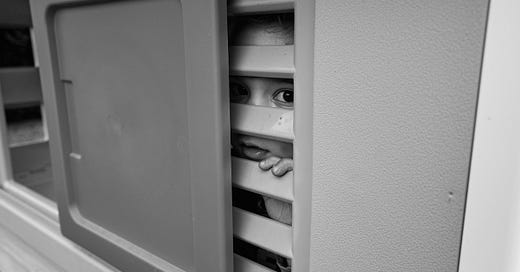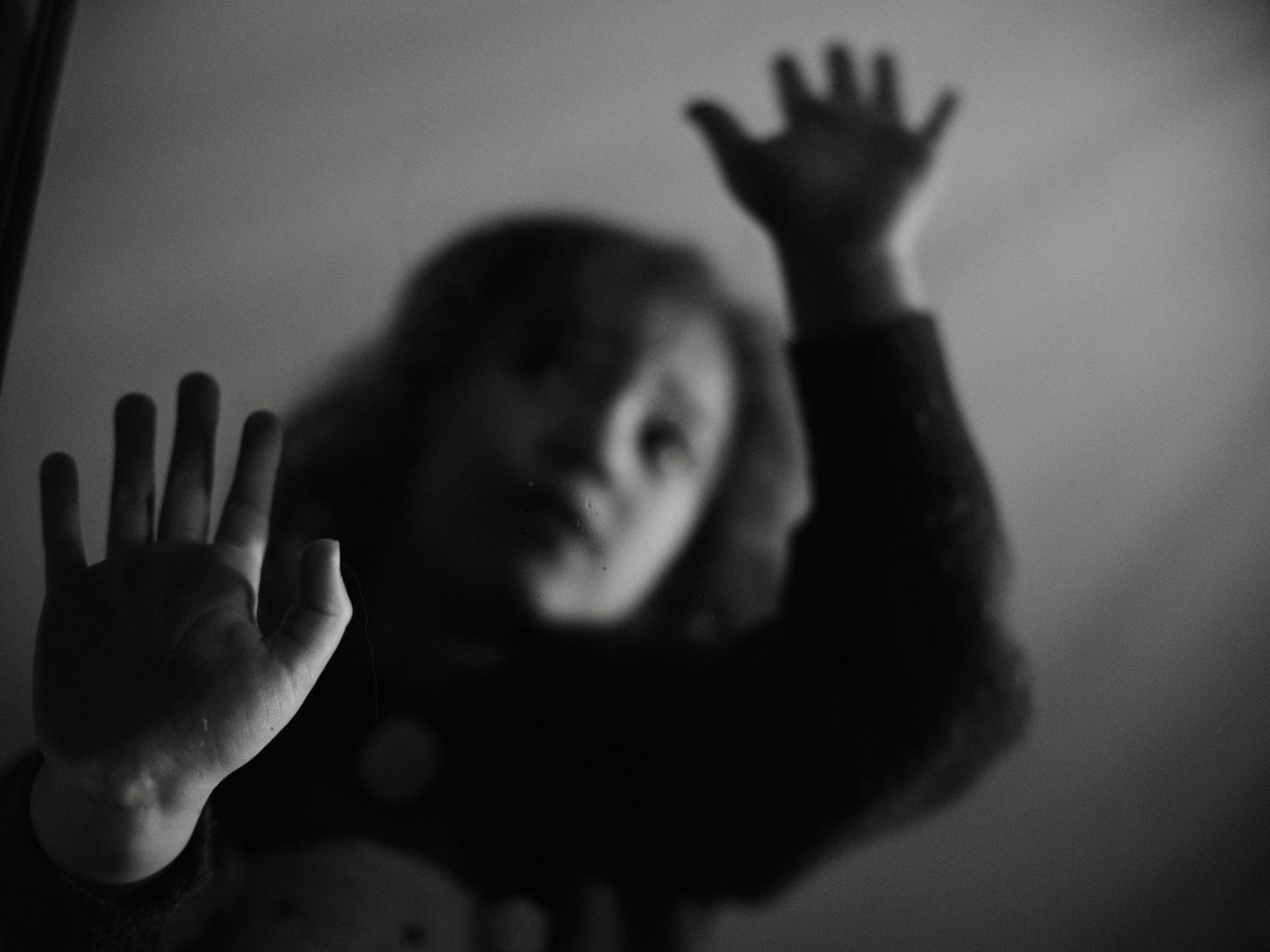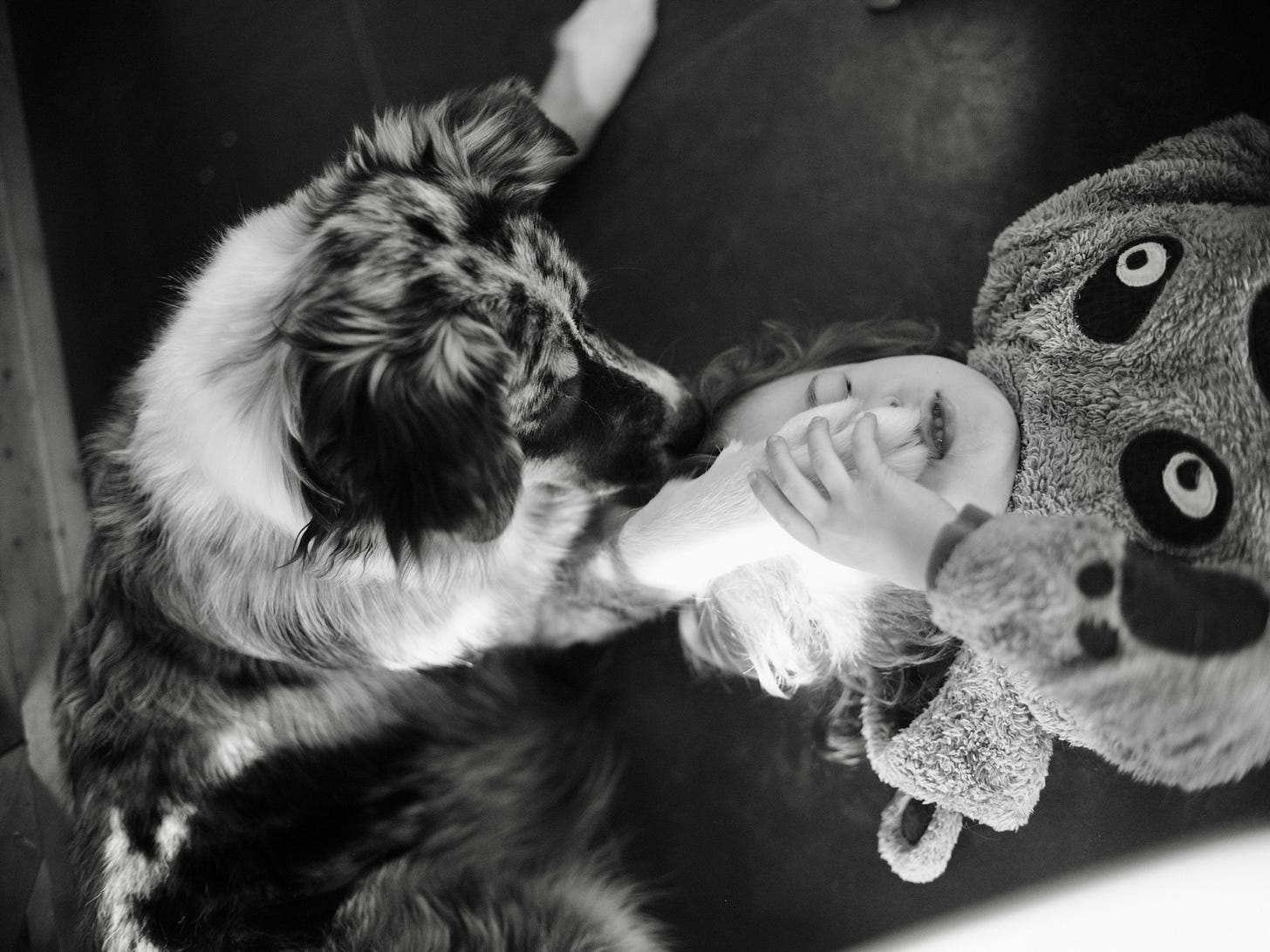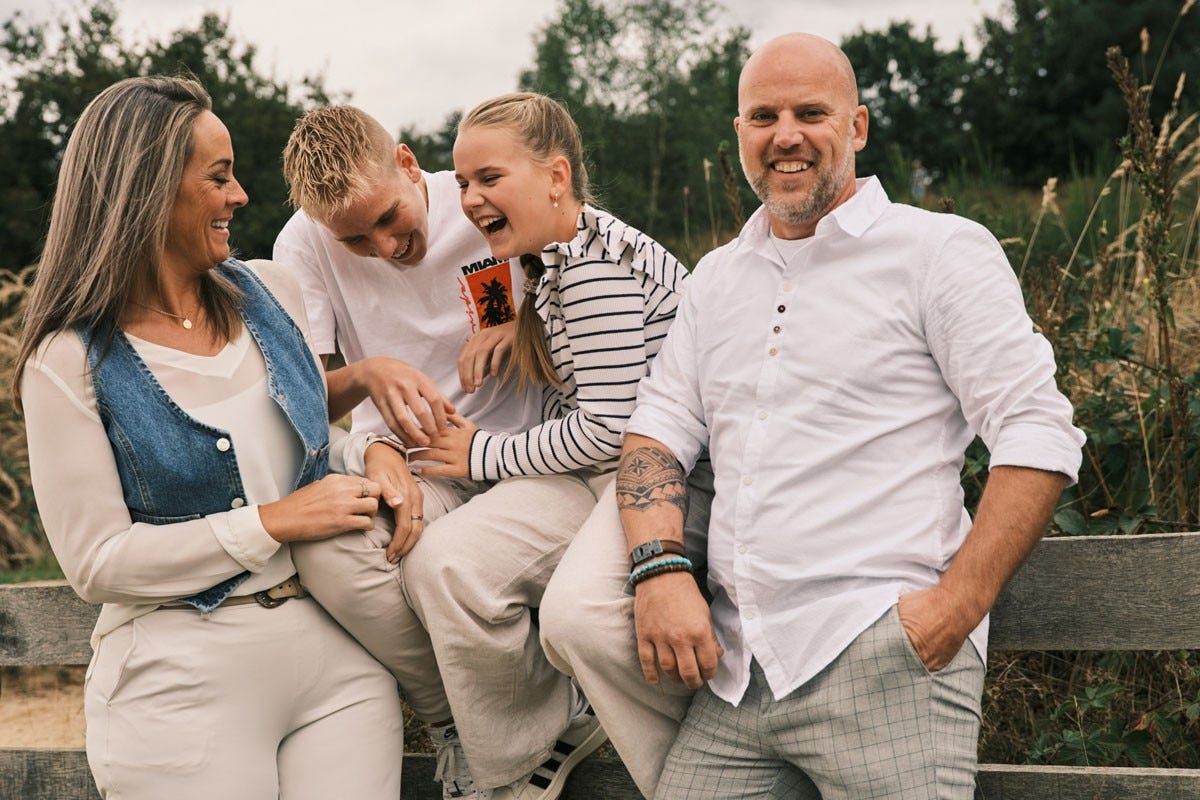Finding Life's Moments: My Journey From Audio Engineer to Documentary Family & Life Photographer.
When the Music Stopped and My Heart Started Listening
Have you ever looked into your child's eyes and suddenly realised how much you've been missing?
After spending over 30 years in the music industry as an audio mastering engineer, I reached a breaking point that might feel painfully familiar: I couldn't even listen to music anymore. But more devastatingly, I couldn't truly hear my children's voices either.
The irony crushed me. There I sat in my professional studio surrounded by $120,000 worth of equipment, being paid to hear what others couldn't—yet I had become deaf to the most precious sounds in my own home.
You know those moments—the ones that slip through your fingers while you're "just finishing something up":
"Daddy, look at this!"
"Not now, I have urgent emails."
"Dad, can you play with me?"
"I have audio work that can't wait until tomorrow."
"Can you watch me do this trick?"
"Maybe later, okay?"
But later never comes, does it? Because childhood doesn't wait. It moves forward relentlessly, whether we're paying attention or not.
I still remember the night I sat at my kitchen table, scrolling through photos on my phone, and realised I had thousands of pictures of my children but barely existed in any of them. And worse—I couldn't recall the actual moments those photos represented. I had been physically present but emotionally absent, my mind always back in the studio.
That's when I knew. In December 2023, with hands trembling slightly, I sent the email I never thought I'd write—announcing my indefinite retirement from the music industry.
Finding Myself Again: One Frame at a Time
The truth is, my transformation began years before that email, during those walks I would take between audio mastering sessions. At first, they were just an escape—a brief reprieve from the suffocating pressure of deadlines and perfectionism.
They started simply as a way to reset my ears—no podcasts, no music, just silence. Just moving my legs to get the blood flowing before the next technical listening session. But in that silence, something profound happened.
I began to hear my own thoughts again. The constant noise of expectations—both external and self-imposed—finally quieted enough for me to remember who I was beneath all the achievements and accolades.
Without the pressure to analyse every sound as I did in the studio, I began to truly notice the world around me:
The way my son's eyes crinkle exactly like mine when he laughs. How my youngest's voice changes slightly when he's telling the truth versus spinning a tale. The sound of our home settling at night, a different kind of symphony than the ones I mixed in the studio. The warmth of small fingers reaching for mine, expecting them to be there.
One day, I started taking pictures with my phone during these walks. Not to create something perfect or commercially viable—just to capture moments that moved me. One snap led to another, and soon I'd fallen headfirst into street photography, finding stories in the everyday lives of strangers that reminded me of the stories unfolding in my own home that I'd been too busy to notice.
What began as a way to rest my professional ears evolved into a healing practice that slowly opened my eyes to what I was about to lose forever: the irreplaceable moments of my own family's story.
When the Camera Lens Became My Heart's Eye
Photography didn't just change my career—it healed my family.
Through my viewfinder, I rediscovered my children. Not the hurried, half-listened-to versions of them I'd been settling for between deadlines, but their full, complex, miraculous selves. The camera forced me to stop, to truly see, to be fully present in a way I hadn't been for years.
I remember the first time I spent an entire afternoon just photographing my boys playing in my backyard. No agenda. No interruptions. No emails. Just watching and witnessing. My oldest son looked up at one point, caught my eye behind the camera, and said, "I like when you look at me like that, Dad." I nearly broke down right there.
He didn't care about perfect photos. He just wanted to be seen.
Street photography became my technical training ground, but family became my emotional education. Through documenting strangers, I learned timing and composition. But through documenting my family, I learned to see with my heart:
The fleeting shadow of vulnerability that crosses my child's face when trying something new
The silent language of touch between brothers who were fighting just moments before
The miracle of ordinary moments—breakfast spills, bedtime negotiations, homework frustrations—that I now understand are actually extraordinary
The way time moves differently for children—how a minute of undivided attention can fill their emotional tanks for hours
With each click of the shutter, I was saying to my family: This moment matters. You matter. I see you.
And in being truly seen, they began to flourish in ways I hadn't noticed before. My once-shy son started sharing more. My youngest began seeking me out for conversations.
Photography didn't just document our family's story—it helped us write a better one.
The Missing Chapter in Your Family's Story (It Might Be You)
There's a moment that breaks my heart every time I work with families. It usually happens during our consultation, when I ask: "Who takes most of the family photos?"
One parent immediately raises their hand, often with a mix of pride and resignation. The other parent usually laughs and adds, "Yeah, they're never actually in any of our pictures."
I know that pain intimately.
One evening, my child asked me a question that stopped me cold: "Dad, why aren't you in our photo books? Didn't you love us back then too?"
The innocence of the question nearly shattered me. Of course I loved them—fiercely, completely. But the evidence told a different story. In their visual history, I was just a occasional guest star, not a main character in their lives.
How many birthdays, first steps, holiday mornings, and ordinary Tuesday afternoons was I technically present for, but missing from their visual memory? How would they remember their childhood decades from now, when memories fade and photos become the primary anchor to the past?
For solo parents, this absence is even more profound. When you're both the memory-keeper AND the primary caregiver, who's preserving YOUR relationship with your children? Who's documenting those precious moments of connection that your children will treasure when they're grown?
These realisations transformed documentary family photography from a creative outlet into a calling with profound purpose. Because every parent deserves to exist in their family's visual history.
Why Each Family's Story Deserves to Be Told
I've heard the same heartbreaking regret from so many parents:
"I wish I had more photos from when they were little."
"I can barely remember what their voice sounded like at that age."
"It all went by so fast, and now I'm struggling to recall the details."
There's a particular kind of grief that comes from realizing certain moments are gone forever, with nothing tangible to bring them back. I know that ache. I've felt it myself.
Today, I create documentary family photographs and videos not just because I love photography, but because I understand what's at stake when we fail to preserve these moments:
The way your toddler makes up songs while playing alone, thinking no one is listening.
How your tween still sleeps with their childhood stuffed animal but hides it when friends come over.
The warmth and perfect fit of those little hands in yours—a feeling that changes subtly as they grow, and one day will be gone. Documenting these moments will always remind me of this feeling, the most profound connection I've ever known.
The precise way your family navigates your morning chaos—a beautiful dance of personalities that will never be replicated exactly this way again.
The look on your face when you watch your child overcome a challenge—a mixture of pride and bittersweet recognition that they need you a little less today than yesterday.
For solo parents, these moments carry even more weight—you're the constant, the foundation, the one who witnesses it all. Your connection with your children is a unique story that deserves to be honored and preserved.
Documentary family photography isn't a luxury—it's a form of time travel for your future self and your children. It gives them "something tangible to show how they lived and loved each other and grew up together"—proof that ordinary days were actually extraordinary.
It's not just about pretty pictures. It's about:
Capturing the love that exists in mundane moments
Preserving the family dynamics that make your relationships unique
Documenting the small gestures that speak volumes about your connection
Showing children they are valued exactly as they are, not just when they're "picture perfect"
Creating visual evidence of a parent's devotion that children can return to throughout their lives.
From One Parent's Heart to Yours
I still remember photographing a mother and her three-year-old daughter last spring. The little girl was having a complete meltdown over a broken crayon. The mom looked at me apologetically, clearly mortified that this was happening during their session.
"Should we take a break?" she whispered.
I shook my head and kept shooting as she gathered her crying child into her arms. What followed was pure magic—the way she stroked her daughter's hair, the whispered reassurances, the gradual calming, the tearful giggles that eventually emerged.
When I delivered those images, that mother cried. "I've never seen myself as a mother like this before," she told me. "I always thought I was failing her during these moments. But looking at these photos... I can see that I'm actually exactly what she needs."
That's the power of documentary family photography—it shows us the beauty in moments we might otherwise dismiss as imperfect or ordinary.
My journey from audio engineer to documentary family photographer wasn't planned. It emerged from my own healing—from learning to truly see my family after years of being physically present but emotionally absent.
As my life evolved into a blended family with my teenage son navigating his own journey (documenting him now requires a different kind of patience and respect for his emerging independence), I've discovered how documentary photography adapts to each family stage. Whether capturing my teen's rare unguarded moments or the new dynamics of our patchwork family, the essence remains the same—preserving authentic connections that evolve but never diminish in importance.
When I photograph your family now, I bring every lesson from my own journey:
The patience to wait for authentic moments to unfold naturally
The awareness to notice the subtle ways love manifests in your family
The understanding that the "imperfect" moments often contain the deepest truths
The perspective of a parent who knows how fleeting childhood really is
For solo parents, I bring special recognition of the unique bond you share with your children—how you are their entire world, and how crucial it is to document that relationship from both sides of the camera.
Your family's story isn't just worth telling—it's worth remembering. Not through stiff, posed portraits, but through images that capture who you truly are when no one's watching.
The moments you think don't matter? They're everything.
The exhausted goodnight kiss. The Saturday morning pancake disasters. The tears over homework. The silent car rides where important truths are finally shared. The ordinary Tuesday dinners that you'll desperately wish you could return to someday.
These Moments Are Happening Right Now
I won't ask you to "say cheese." I won't tell your children to stand still. I won't suggest you all wear matching outfits.
Instead, I'll simply document your love in action—the real, raw, beautiful story of your family exactly as you are today.
Because tomorrow, they'll be different. And so will you.
Preserve These Moments Before They're Gone
P.S. Many parents tell me, "I wish I had done this sooner." If you're curious about why documentary family photography creates such powerful emotional connections and family heirlooms, read my article "[The Unposed Truth: Why Documentary Family Photography Creates Your Most Treasured Memories]".
It explains the 22 reasons why these authentic images become more valuable with every passing year.









